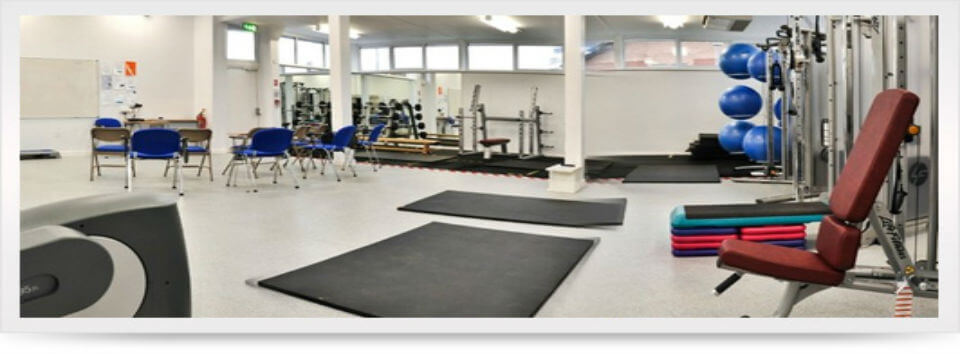Surgery is often the first step toward relief and renewed function for athletes, but recovery can bring unexpected emotional challenges. What begins as optimism about healing can quickly give way to frustration, anxiety or even sadness when progress feels slow or setbacks arise. Dr. Larry Davidson, a leader in minimally invasive spine surgery, reminds athletes that emotional ups and downs during recovery are normal and manageable. Addressing the mental side of healing is just as important as following a physical therapy plan.
The path back to sport and strength is rarely linear. By understanding common emotional hurdles and using practical tools, athletes can shift from frustration to focus and navigate recovery with resilience. Support from coaches, therapists and teammates plays a crucial role in keeping motivation high during challenging phases. Small, measurable goals along the way help maintain a sense of progress and purpose, even when setbacks occur.
The Emotional Landscape of Recovery
Post-surgical recovery tests more than just the body. Athletes often experience a range of emotions as they adjust to new limitations, temporary loss of independence and uncertainty about timelines. Identity shifts can be particularly difficult to identify. When so much of a person’s self-image is tied to sport or performance, stepping away, even briefly, can feel disorienting. Fear about reinjury, frustration over slow gains and comparisons to peers can make the recovery process even tougher.
Recognizing these feelings as a natural part of recovery is the first step toward managing them. Emotional awareness helps athletes respond thoughtfully, rather than impulsively. It allows them to pause, reflect and choose coping strategies that support their well-being. Over time, this mindful approach strengthens both mental resilience and overall recovery outcomes.
The Power of Setting Realistic Goals
One of the most effective ways to channel frustration into focus is to set realistic, achievable goals. Dr. Larry Davidson encourages athletes to break down recovery into small milestones that can be celebrated along the way. Instead of fixating on a distant return to competition, athletes can focus on daily or weekly wins, such as regaining range of motion, walking without discomfort or mastering a new physical therapy exercise.
This approach creates a sense of progress and control, helping athletes focus less on what is temporarily out of reach and more on what is achievable in the present moment. It nurtures optimism, helping athletes build momentum and achieve consistent gains.
Visualization and Mental Rehearsal
Visualization is a powerful tool for athletes managing the emotional rollercoaster of recovery. Mentally rehearsing movements, exercises or even game scenarios helps keep sport identity intact and supports physical performance when the time comes to return. Athletes can use quiet moments to imagine themselves moving with strength, precision and confidence, reinforcing positive expectations.
Regular mental practice creates a meaningful connection between where the athlete is now and where they aim to be. It helps reduce anxiety, reinforce movement patterns and rebuild trust in the body’s capabilities, before physically returning to sport. Over time, these mental rehearsals contribute to greater focus, emotional readiness and a stronger sense of control. These are key ingredients for a confident and successful comeback.
Mindfulness and Staying Present
The recovery journey can feel overwhelming when viewed in its entirety. Mindfulness, focusing attention on the present moment, without judgment, helps athletes stay grounded. Simple techniques such as deep breathing, body scans or mindful walking encourage awareness of what is happening now, rather than dwelling on fears about the future or regrets about the past.
Mindfulness doesn’t remove challenging emotions, but it allows athletes to notice them with clarity and respond thoughtfully. By developing this awareness, they can better manage frustration, impatience or fear that may come up during recovery. Staying present in this way builds emotional resilience and helps sustain motivation throughout each stage of healing.
Building a Support System
Recovery is not a solo endeavor. Athletes benefit from leaning on a support system that includes family, teammates, coaches, medical professionals and friends. Honest conversations about emotional challenges create opportunities for encouragement, perspective and practical help. Sharing both victories and struggles with trusted people helps ease isolation and maintain motivation.
In addition to personal support, sports psychologists or counselors can offer valuable, specialized guidance. They help athletes navigate identity shifts, manage anxiety and cope with the mental fatigue that often accompanies long recoveries. Professional support complements the encouragement of friends and family by equipping athletes with practical strategies to stay focused, emotionally balanced and mentally resilient throughout the healing process.
Recognizing When to Seek Extra Support
It is normal to have tough days during recovery, but athletes should be alert for signs that emotional challenges are becoming overwhelming. Persistent sadness, loss of interest in activities, difficulty sleeping or changes in appetite may signal the need for additional support. Seeking help from a mental health professional is a sign of strength and a proactive step toward healing.
Early intervention can make a meaningful difference by addressing emotional challenges before they intensify. Recognizing the need for help and reaching out ensures that athletes stay on track both mentally and physically. With timely support, what may feel like a setback can become an opportunity for growth and renewed resilience.
Turning Setbacks into Opportunities
Setbacks during recovery are discouraging, but they also offer opportunities for growth. When progress stalls or complications arise, athletes can practice resilience by focusing on what is within their control, such as their attitude, effort and commitment to the plan. Adjusting expectations, seeking guidance from the care team and reworking goals help maintain momentum even in challenging times.
Celebrating adaptability reinforces a mindset of strength and flexibility that benefits athletes not only during recovery but also in future competition. Embracing changes with a problem-solving attitude helps transform frustration into progress. Over time, these moments of adjustment can deepen mental toughness and remind athletes that resilience is a skill they carry with them far beyond recovery.
Strength in Every Step
Managing the emotional ups and downs of post-surgical recovery is part of the journey back to sports and health. By using practical tools, seeking support and staying focused on achievable goals, athletes can transform frustration into determination. With time, patience and care for both body and mind, recovery becomes not just a return to play but a powerful story of resilience.
That resilience extends far beyond the field or court. The discipline, perspective and mental strength built during recovery become lasting assets. These qualities help athletes face future challenges with greater confidence and clarity, both in sports and in life.



